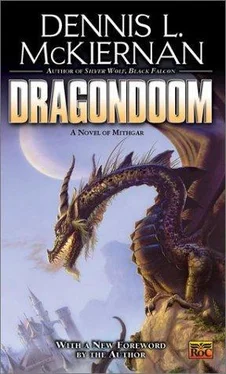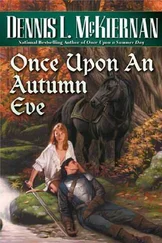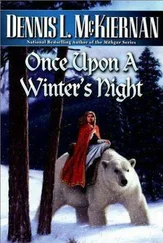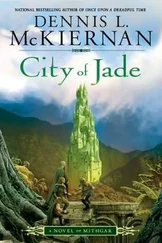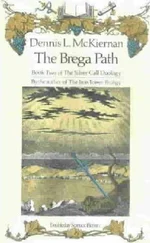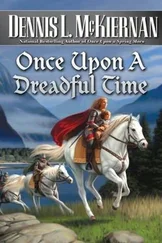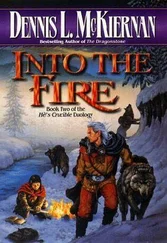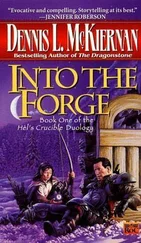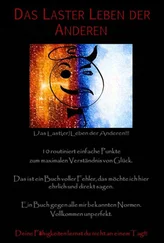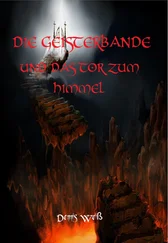And the DelfLord stood high in the airy silence, surveying the world-Mountains and forests, valleys and streams, stone and snow and soil-and he would have gladly given it all for just one more glimpse of the precious face of his beloved Princess of Jord.
It was upon the third day of his solitary retreat that Thork again stood out upon the Mountain flank. It was late afternoon, and overhead a black storm roiled among the peaks; lightning streaked downward, thunder crashing after, and high dark clouds swirled above, though here and there wide rifts clove upward into the flashing, booming churn.
Wind battered at Thork, pummelling him, swirling his cloak about him, blowing his hair and beard, as if the coming storm were angered by his very presence.
And of a sudden he saw a red hawk sailing ’cross the seething sky, riding the winds of the storm and crying out its defiance:
Skree!
And Thork stood and watched.
Skree!
And a vision of Elyn-copper hair and green eyes-rose up in his mind. .
Beloved.
“Red hawk against dark sky, rise up on the thunder and wind and lightning, and ride the storm, as did my Elyn.”
And the hawk rose up ever higher, wheeling on the wind, riding up o’er the white Mountain crests and up among the chasms between the grey roiling clouds. And again Thork heard the far-off Skree! as if the raptor challenged the very elements themselves.
How like my Elyn.
Higher and higher the hawk wheeled, Thork straining to see-
Beloved.
— tears running down his face.
And it began to rain, water lashing down; but still he stood weeping and watched the hunter soar up into the distant thundering sky. Yet at last he could see the hawk no more, its red flight beyond his vision. And he cast his hood o’er his head and turned and went back inside.
“Tell me, my son, what is the greatest enchantment of all?”
“Why, love, Master, love; true love be the greatest enchantment of all.”
Thork reigned long and was well loved. Under his guidance Kachar prospered and Blackstone again became the Jewel among Châkkaholts. Too, it is said that in some fashion he aided Jord to recover, though just how is not recorded. When he died he was laid to rest in stone carven with a pair of red hawks in flight, male and female, an unusual device for a Dwarven tomb. He was forever remembered in the songs of bards as one of the two who together slew Black Kalgalath.
He never married.
For many long ages the Harlingar and the Châkka held each other in contempt; and even though they fought shoulder to shoulder in the War to overthrow the Usurper, and again as allies during the Winter War, still they continued to bristle at the sight of one another. It was not until the War of Kraggen-cor, more than twenty-six hundred years after the slaying of Sleeth and the taking of his hoard, that the rancor between Dwarves and Riders was at last erased, for no hatred, no vengeance, no neglect is passed on forever; it must come to rest somewhere, to vanish in the eternity of time or to die under the weight of love. Even so, Elgo’s name forever became a curse in the mouths of the Châkka, and forever a benediction upon the lips of the Vanadurin.
There was but a single treasure of any consequence that survived from the hoard of Sleeth the Orm: a small silver horn on green baldric. Carven on the bell of the horn were diminutive riders on horseback racing among mystic runes. It came back into Jord upon a well-escorted waggon bearing Bram, son of Elgo and heir to Jord, and his mother, Arianne; and Bram called his favorite toy, the horn, his “tahn tahn,” for he was but three, nearly four, when Aranor sent for him to return to Jordkeep. The horn was passed down as an heirloom of Elgo through generation after generation of Vanadurin riders, until one day it fell into the hands of one of the Wee Folk. .
But that is another tale.
